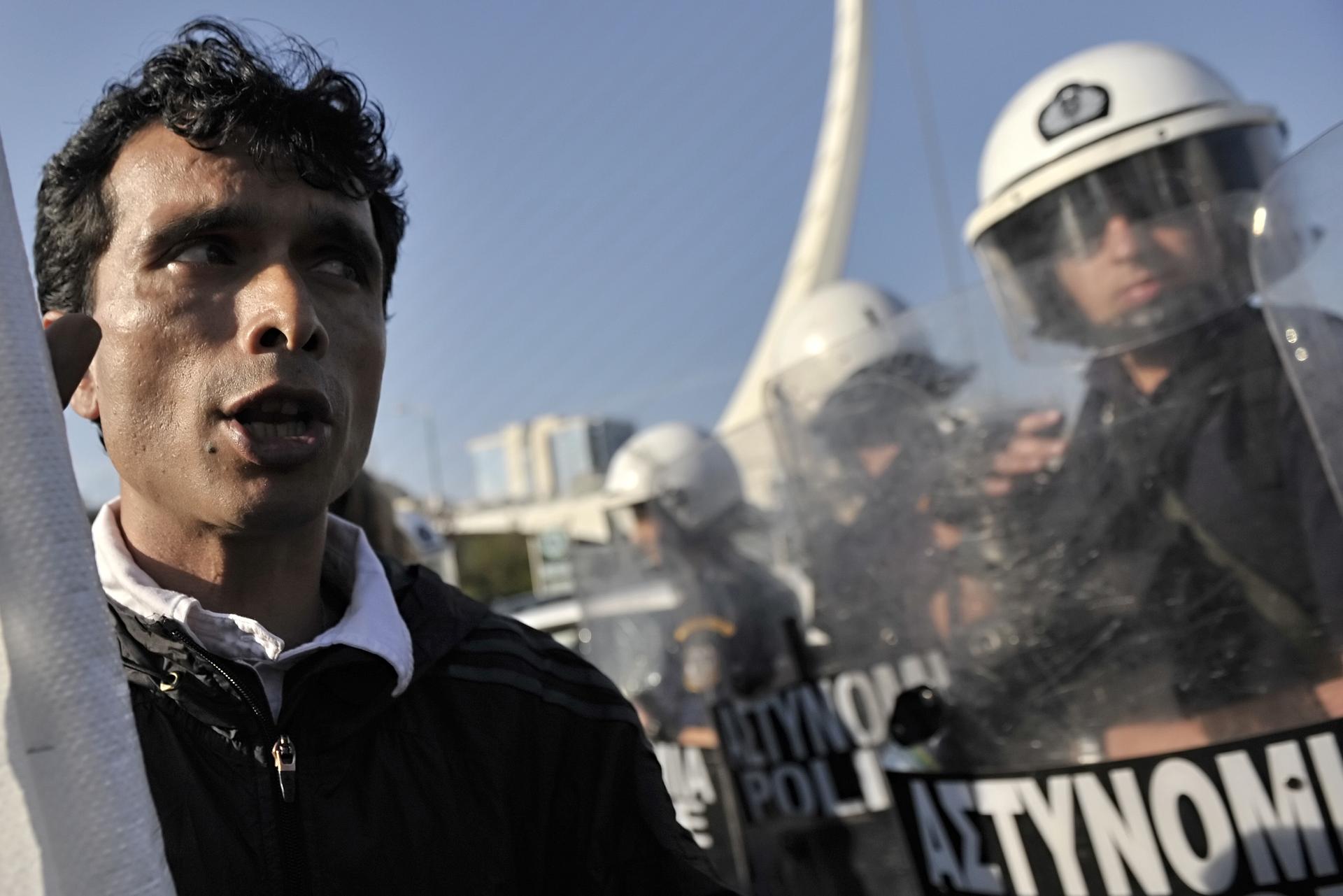Migrants flee Greek xenophobia
Hostile environment: many migrants are leaving Greece instead of lobbying for asylum.
GJIROKASTRA, Albania — Patience paid off for the police in this southern region on a Sunday night earlier this month.
Hours spent scanning the Drino River valley — which stretches along the border with Greece to the south — through thermal night vision binoculars were rewarded when a group of 16 people materialized from the pitch black.
They were among the more than 1,200 migrants entering illegally who have been intercepted since the beginning of the year.
“Only this summer, we’ve stopped more than 800,” says Gentian Mullai, a spokesman for local police in the nearby city of Gjirokastra.
Greece, with a population of barely 11 million, hosts an estimated 1 million immigrants. Some of the recent arrivals came from war-torn countries in the Middle East and Central Asia through the porous Turkish border.
But many are now desperate to escape an increasingly hostile atmosphere, characterized by a dysfunctional asylum system, inhuman detention conditions and xenophobic violence.
“They face arrest, maltreatment from Greek police and extremist groups and are often desperate to reach the West,” Mullai says.
Although the government has recently taken steps to improve detention facilities, experts say that migrants and asylum seekers, including children, continue to be held in substandard installations designed for only short-term stays.
“The failure of successive Greek governments to adopt coherent migration policies, chronic mismanagement of the asylum system, and most recently, the deep economic crisis and resulting austerity have exacerbated what the United Nations High Commissioner for Refugees described as a humanitarian crisis already in late 2010,” says Eva Cosse, a researcher for Human Rights Watch.
Greece is usually only a stop en route to the final destinations of undocumented migrants seeking to enter the European Union, according to the EU’s border control agency, FRONTEX.
But now the western Balkans are providing the most popular route for the second year in a row.
FRONTEX said in a report that western Balkan countries and their EU neighbors reported almost 35,000 cases of illegal border crossings in 2012, a 33 percent increase from the previous year.
Most of the growth was linked to the movement of Afghans, Pakistanis, Algerians, Somalis, Syrians and Moroccans from Greece to other EU members, the report said.
Mullai says many migrants who use Albania as a transiting route pay traffickers roughly $2,000 to be taken from Athens to Montenegro, one leg of the journey into Western Europe.
An increase in the number of illegal migrants found hidden in trucks and other vehicles suggests they’re increasingly relying on more sophisticated smuggling services.
The recent wave was prompted by a massive anti-migrant sweep by Greek police in August 2012 — ironically named Xenios Zeus, after the ancient Greek god of hospitality — which relied on systematic racial profiling.
During the first seven months of the operation, more than 84,000 foreigners were taken to police stations for verification of their legal status, according to Human Rights Watch. Fewer than 6 percent were found to be in Greece illegally.
The operation, which involved unjustified searches, insults, and, in some cases, physical abuse, put strains even on legal migrants, Cosse says.
“Many of the people I interviewed told me that they fear going outside because of racist attacks, but also because they worry police will stop them and that they’ll have to lose a day locked in a police station,” she says.
A majority of the racist attacks are blamed on the far-right Golden Dawn Party, which has vowed to rid Greece of "migrant scum." The neo-Nazi group won an unprecedented 6.9 percent of the vote in last year’s parliamentary elections.
More from GlobalPost: Environmental protests turn political in Romania
The party’s popularity and the xenophobic backlash have been fueled by the country’s ongoing economic crisis and an influx of migrants seeking better lives.
“Migrants who are vulnerable are being used as scapegoats for the society’s problems,” says Elenie Takou, coordinator of the UNHCR’s Racist Violence Recording Network.
With no end in sight to that kind of treatment, the migrant influx into Albania and other Balkan countries looks set to continue for the foreseeable future.
